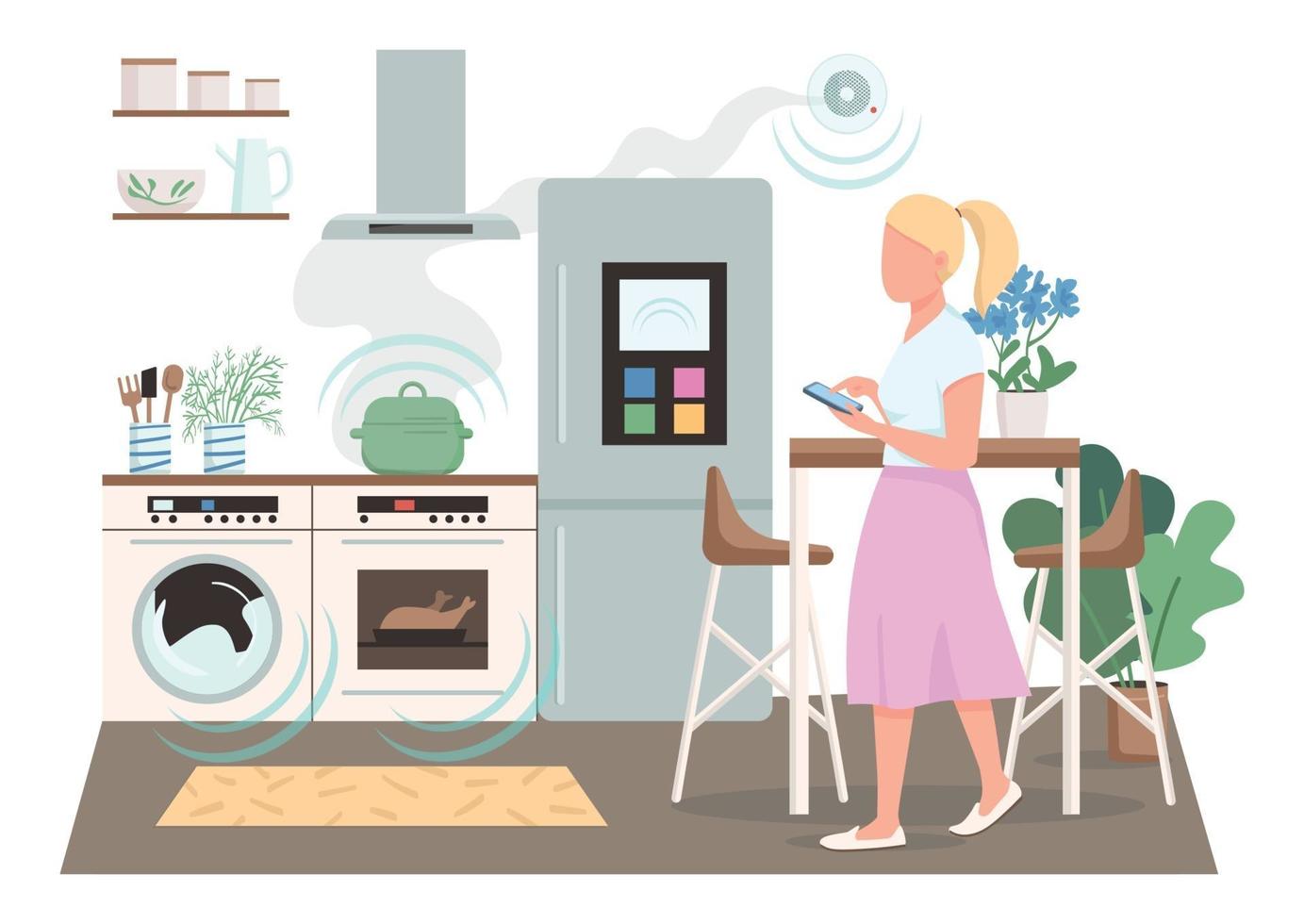Smart home kitchens have revolutionized the way we approach cooking and food management through the use of smart appliances. With the integration of smart appliances, these kitchens offer a myriad of benefits that enhance convenience, efficiency, and overall cooking experience. Smart appliances bring cutting-edge technology into our culinary spaces, allowing us to enjoy precise cooking results, save time and energy, and seamlessly integrate our kitchen into the broader smart home ecosystem. From intelligent refrigerators to automated ovens, these appliances are transforming traditional kitchens into high-tech, efficient, and personalized culinary havens. In this article, we will explore the numerous advantages of incorporating smart appliances into our home kitchens and how they enhance our daily cooking routines.
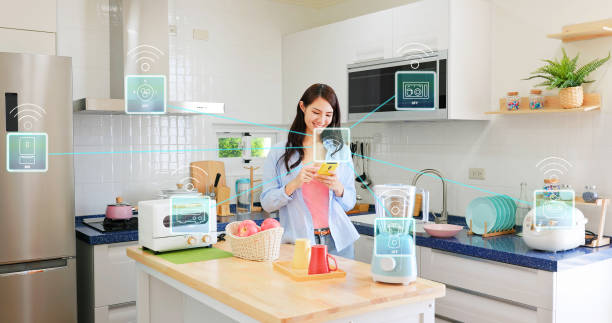
- Convenience and Time-Saving:
Smart appliances offer a wide range of features that enhance convenience and save time in the kitchen. For example, smart refrigerators have touchscreens or smartphone apps that allow users to access their contents and make adjustments without physically opening the door. This eliminates the need for constantly checking the fridge and helps users quickly find the items they need.
Similarly, smart ovens can be controlled remotely through smartphone apps or voice-activated assistants. This means you can start preheating your oven while you’re still at work or on your way home, ensuring that it’s at the desired temperature when you’re ready to cook. This feature reduces waiting time and allows you to begin cooking as soon as you step into the kitchen.
Furthermore, some smart appliances offer cooking presets and recipe suggestions, taking the guesswork out of preparing meals. Smart stovetops, for instance, can provide step-by-step instructions for various recipes, making it easier to achieve culinary perfection without constantly referring to cookbooks or online recipes. This convenience saves time and ensures consistent cooking results.
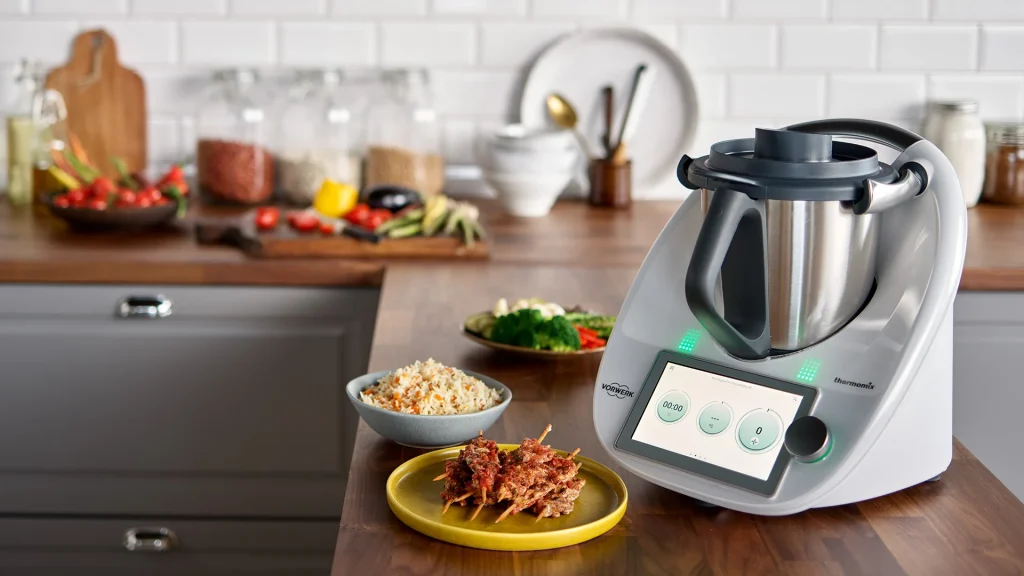
- Precise and Consistent Cooking Results:
Smart appliances utilize advanced technologies to deliver precise and consistent cooking results. For example, smart ovens often have built-in temperature probes that monitor the internal temperature of the food being cooked. This allows the oven to adjust the cooking time and temperature accordingly, ensuring that meats are cooked to perfection and baked goods come out evenly browned.
Some smart appliances, such as induction cooktops, employ precise heat control mechanisms. These cooktops use sensors to detect the size and shape of the cookware being used, adjusting the heat distribution accordingly. This eliminates hot spots and ensures even cooking throughout the entire pan.
Moreover, smart appliances can learn and adapt to your cooking preferences over time. With machine learning capabilities, they can analyze your cooking patterns and adjust settings accordingly to achieve consistent results. This means that your smart oven will gradually learn how you like your roast cooked and automatically adjust the cooking time and temperature to match your preferences.
- Enhanced Food Management:
Smart home kitchens provide an array of features that not only streamline cooking processes but also revolutionize food management. Intelligent food storage solutions have transformed the way we keep track of our groceries, minimize waste, and maximize efficiency.
Smart refrigerators, for instance, are equipped with inventory management systems that utilize sophisticated sensors to detect the presence and quantity of items. These systems can keep a real-time record of the ingredients stored, their expiration dates, and even their nutritional information. Some models even have built-in touchscreens or smartphone apps that allow users to view and manage their inventory conveniently.
With the help of barcode scanning or image recognition technology, smart refrigerators can identify items as they are placed inside, automatically updating the inventory list. This eliminates the need for manual input and ensures accuracy. Moreover, these refrigerators can suggest recipes based on the available ingredients, inspiring users to create culinary masterpieces using what they already have at hand.
In addition to inventory management, smart pantry systems can offer useful features such as expiration date tracking and personalized recipe suggestions. By notifying users when items are approaching their expiration dates, these systems help reduce food waste by encouraging timely consumption. The personalized recipe suggestions based on available ingredients not only provide inspiration for meal planning but also help users make the most of their pantry items, reducing the need for additional grocery runs.
Moreover, smart home kitchen apps enable users to access their inventory remotely, providing the ability to check ingredient availability while at the supermarket or on the go. This feature helps users make informed purchasing decisions, avoid duplicate purchases, and minimize food waste. By having a clear understanding of their kitchen inventory, users can plan meals efficiently and reduce the chances of ingredients going unused or expiring.
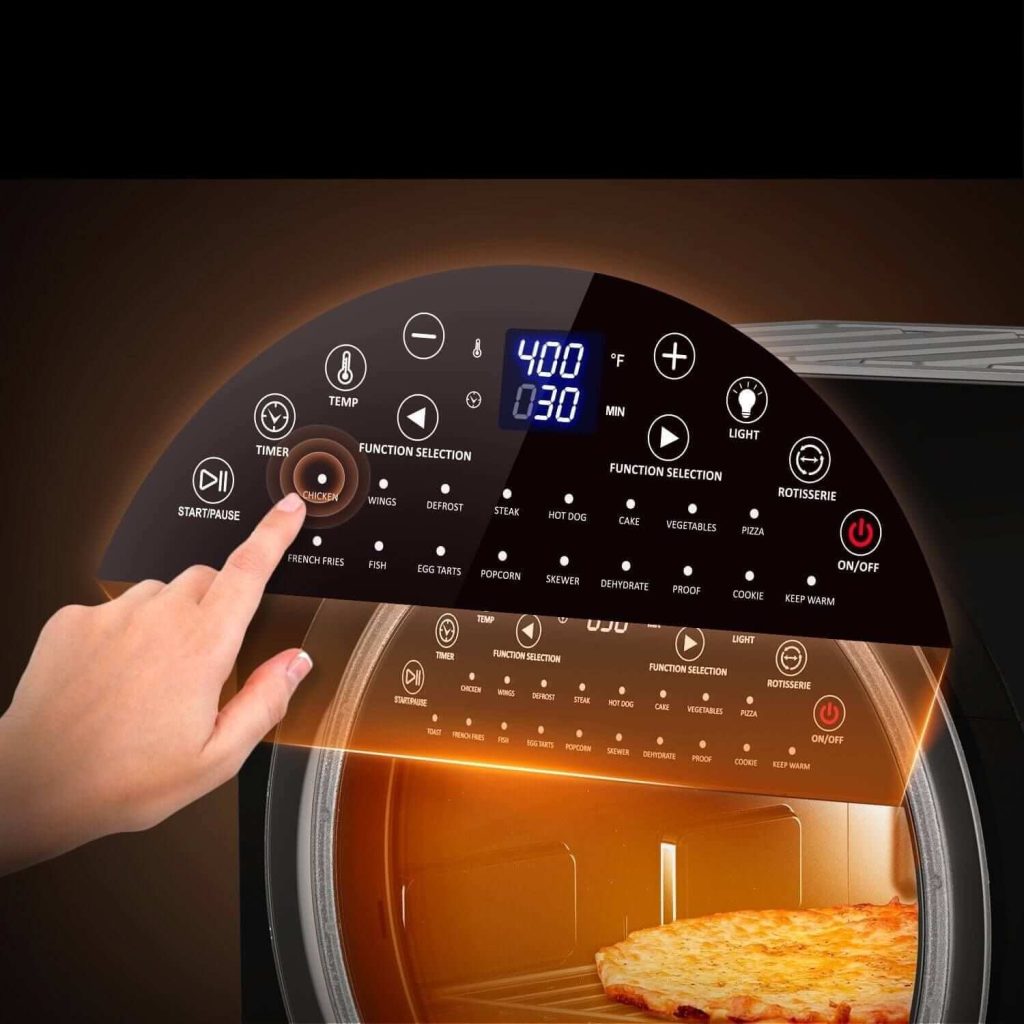
- Energy Efficiency and Sustainability:
Smart home kitchens are not only focused on convenience and functionality; they also prioritize energy efficiency and sustainability. Energy-saving features integrated into smart appliances help reduce power consumption and contribute to a greener kitchen.
Smart dishwashers, for example, utilize advanced sensors and algorithms to determine the optimal water and energy usage based on the load size and level of soiling. By customizing the wash cycle to the specific needs of the dishes, these appliances minimize waste and energy consumption. Some models even offer the flexibility to operate during off-peak hours, taking advantage of lower electricity rates and further reducing environmental impact.
Smart lighting systems play a significant role in energy conservation within the kitchen. These systems utilize occupancy sensors to detect when a room is empty, automatically adjusting the lighting or turning it off to save energy. They can also adapt to natural lighting conditions, dimming or brightening the lights accordingly. By optimizing lighting usage, smart home kitchens minimize electricity waste and contribute to overall energy efficiency.
Water conservation is another crucial aspect of sustainability in smart home kitchens. Smart faucets equipped with motion sensors or touchless controls deliver water in controlled amounts, reducing unnecessary water usage. Some models even have the ability to provide information on water consumption, allowing users to monitor their usage habits and make more informed choices.
Moreover, smart home platforms enable users to monitor and control their energy consumption in real-time. Through intuitive interfaces, users can access detailed energy usage data, helping them identify areas where energy is being wasted and make adjustments accordingly. This transparency empowers users to make conscious decisions about their energy usage and encourages sustainable practices.
The integration of renewable energy sources is also gaining momentum in smart home kitchens. Solar panels can be installed on rooftops, generating clean and renewable energy to power the kitchen appliances. Excess energy produced can be stored in home battery systems, providing a sustainable and efficient power source for the kitchen and reducing reliance on traditional energy grids.
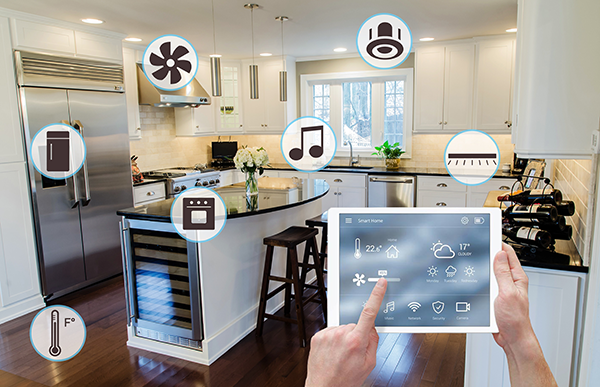
- Integration with Smart Home Ecosystem:
One of the key advantages of smart home kitchens is their seamless integration with other smart devices and systems within the home. This integration creates a cohesive smart home ecosystem, offering enhanced functionality and convenience.
Smart home hubs, such as voice-activated assistants or central control panels, act as the command centers for the entire smart home ecosystem. They can be used to control various kitchen devices, from appliances to lighting systems, creating a synchronized and connected experience.
Integration with smart lighting systems allows users to control kitchen lighting through voice commands or smartphone apps. They can adjust the brightness, color, or ambiance of the lights to suit different activities or moods. For example, during cooking, users can request bright task lighting, while during meals, they can set a more relaxed and cozy ambiance.
Smart home security systems can also be seamlessly integrated into smart home kitchens, providing an additional layer of safety. For instance, motion sensors can be installed to detect any unauthorized activity, and users can receive instant notifications on their smartphones. This integration ensures that the kitchen remains secure, even when the occupants are away from home.
Integration with home automation systems allows for advanced and personalized scenarios. For example, users can create custom routines that automatically adjust the kitchen environment based on their preferences. These routines can include actions such as turning on the coffee maker, adjusting the temperature, and playing their favorite morning playlist when they wake up.
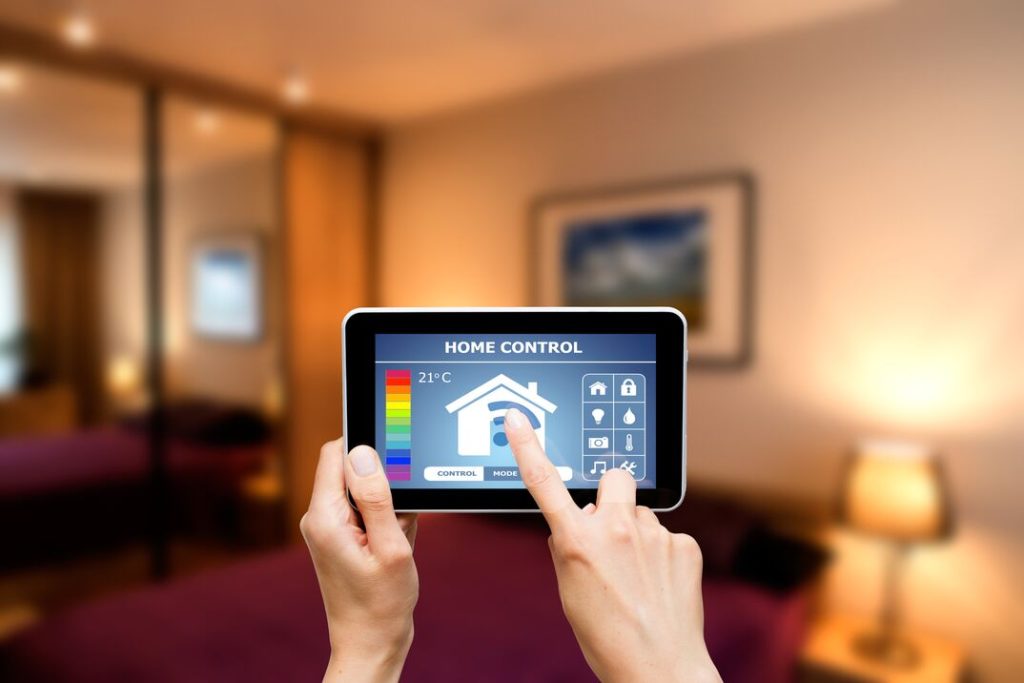
- Improved Safety and Monitoring:
Smart appliances in the kitchen are designed with safety features that prioritize user protection and offer monitoring capabilities.
Smart smoke and carbon monoxide detectors provide an additional layer of safety in smart home kitchens. These detectors can be connected to the home automation system, enabling them to communicate with other smart devices. In case of smoke or a detected gas leak, the smart detectors can automatically trigger actions such as turning off gas supplies, shutting down appliances, and activating emergency alerts to ensure the safety of the occupants.
Smart ovens and stovetops often come equipped with safety features such as automatic shut-off timers. If a cooking time exceeds a specified duration or the appliance is left unattended, the smart appliance will automatically turn off to prevent accidents or fires. This feature provides peace of mind, especially when cooking multiple dishes simultaneously or when distractions arise in the kitchen.
Additionally, smart appliances offer remote monitoring capabilities that enable users to keep an eye on their kitchen even when they are not physically present. Through smartphone apps, users can access live camera feeds to observe ongoing cooking processes or simply check if the oven has been turned off. This monitoring capability provides an added level of convenience, security, and reassurance.
In conclusion, smart home kitchens offer enhanced food management capabilities, prioritize energy efficiency and sustainability, integrate seamlessly with the smart home ecosystem, and provide improved safety features and monitoring options. By incorporating smart appliances into our kitchens, we can enjoy a more efficient, convenient, and sustainable cooking experience while promoting a greener and safer living environment. As technology continues to advance, the possibilities for smart home kitchens are vast, promising even more innovative and transformative features in the future.
